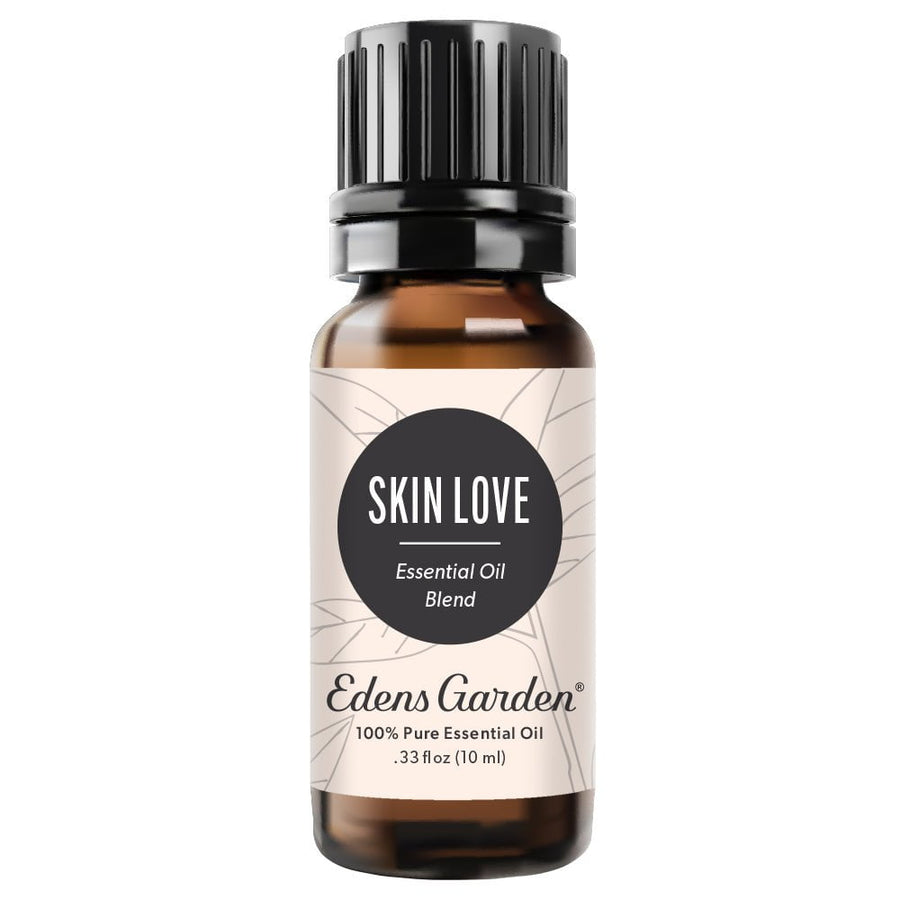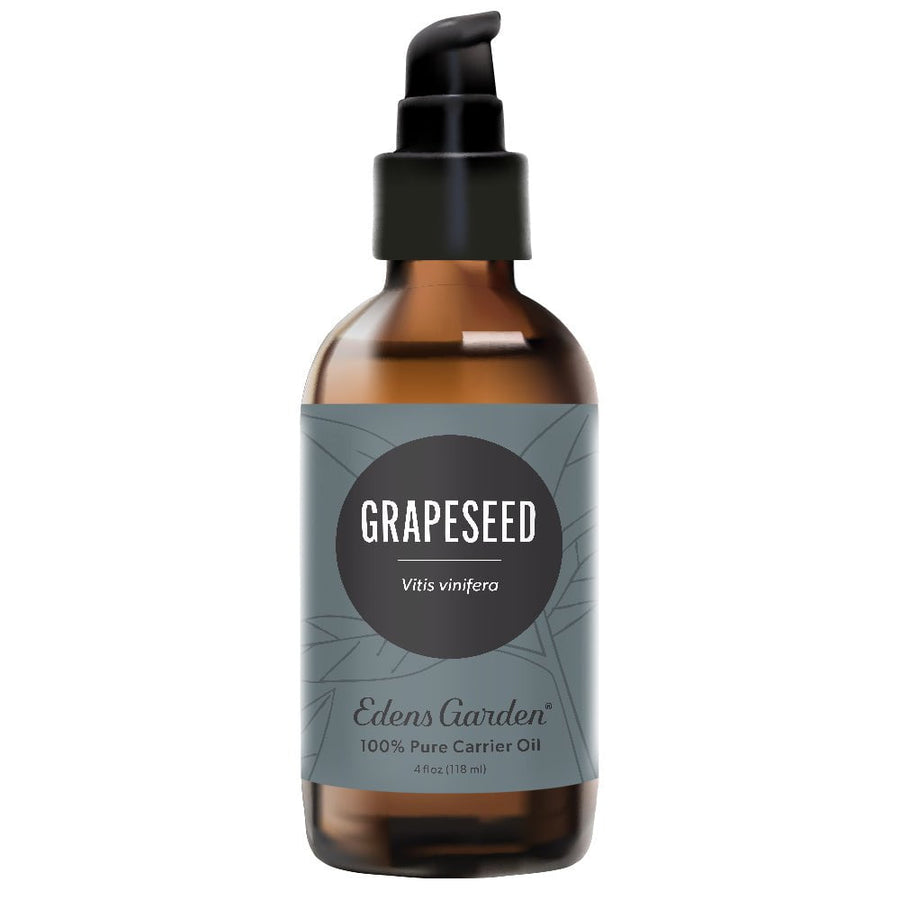How Much Product Should I Use? Essential Oil Dilution Rate Guide

From enhancing your mood and promoting restful sleep to supporting clear skin, easing discomfort, and boosting immunity, essential oils offer countless benefits. But when it comes to topical application, the key to getting the most out of your essential oils lies in one crucial step: diluting.
Diluting essential oils properly not only ensures safety but also helps your oils go further,[1] making your wellness routine more economical and effective. In this comprehensive Essential Oil Dilution Guide, we’ll show you how much essential oil to use, how to pair it with carrier oils, and which dilution percentages are best for specific uses.
Whether you’re crafting a roll-on blend, a soothing body oil, or a homemade face serum, this guide is your go-to reference for safe and effective essential oil usage.
What Does It Mean To Dilute Essential Oils?
To “dilute” an essential oil means to mix it with a carrier oil. A carrier oil is a neutral, skin-safe oil that acts as a base. This process:
- Prevents skin sensitivity and irritation
- Enhances absorption and effectiveness
- Makes your essential oils last longer
- Allows for safe use on sensitive individuals, like children, elderly individuals, and those with sensitive skin
Why Is Dilution Important?
Essential oils are highly concentrated. Just one drop may contain the essence of dozens, or even hundreds, of plant parts.[2] Applying them directly to the skin (also called “neat application”) can lead to reactions like redness, burning, rash, or long-term sensitization.
How Do You Dilute Essential Oils?
Start by identifying the purpose of your essential oil application. Is it for a facial serum? A massage blend? A calming roll-on? Your goal determines your dilution rate, which is the percentage of essential oil in relation to the carrier oil.
Here’s a quick reference chart:

How Much Essential Oil Should You Use?
Use the chart below to determine the number of drops needed based on your dilution percentage and the total volume of your blend.
Dilution Rate Chart: Drops of Essential Oil per Ounces of Carrier Oil

Tip: When in doubt, start with the lowest dilution rate and adjust as needed. Less is often more in aromatherapy.
What’s the Difference Between Carrier Oils and Essential Oils?
To understand dilution, it helps to know how carrier oils differ from essential oils.

What Is a Carrier Oil?
Carrier oils are non-volatile, plant-based oils like Jojoba, Coconut, Sweet Almond, and Grapeseed. They hydrate and nourish the skin while delivering essential oils safely and effectively.[3]
Which Carrier Oil Should I Use?
Choosing the right carrier oil depends on your skin type, application method, and personal preference. At Edens Garden, we offer a wide range of premium, cold-pressed carrier oils perfect for diluting essential oils.

Top Recommended Carrier Oils:
- Jojoba Oil: Closest to skin’s natural sebum, ideal for all skin types
- Fractionated Coconut Oil: Lightweight, non-greasy, long shelf life
- Sweet Almond Oil: Rich in Vitamin E, great for dry or sensitive skin
- Grapeseed Oil: Fast-absorbing, excellent for oily or acne-prone skin
Can I Use Essential Oils Undiluted?
In short, no. We strongly advise against applying essential oils undiluted to the skin.
Undiluted use can lead to:
- Burning or irritation
- Skin sensitization (long-term allergic reactions)
- Photosensitivity with citrus oils
Even oils considered “gentle,” such as Lavender or Tea Tree, can cause adverse reactions when used neat.
Pre-Diluted Options
To simplify your routine, try Edens Garden’s pre-diluted essential oil Roll-Ons and nourishing Body Oils. Expertly formulated at safe concentrations, they take the guesswork out of blending. Just open and use!
Diluting for Children, Pregnancy, and Sensitive Skin
Certain groups require extra care when using essential oils topically.
Dilution Tips by Group:
- Children 2+ years: Stick to 1% or less. Avoid oils contraindicated for children, like Peppermint and Eucalyptus.
- Pregnant or nursing: Consult your doctor. Use 1% dilution with calming oils like Lavender, Frankincense, or Chamomile.
- Sensitive skin: Always patch test and start with a low dilution of around 1%. Choose gentle oils like Sandalwood, Geranium, and Rose.
Our OK For Kids line is specially formulated for children with safety as the top priority.
Expert Tips For Safe Blending
- Always patch test. Apply a small amount of your diluted blend to the inner arm. Wait 24 hours for any signs of irritation.
- Use clean, glass containers. Essential oils can degrade plastic over time.
- Store in a cool, dark place to maintain shelf life and effectiveness.
- Keep out of reach of children and pets.
- The Art of Safe Essential Oil Use
Proper dilution is the foundation of safe aromatherapy. By following the guidelines above, you’ll not only protect your skin but also get the most out of every drop of your favorite Edens Garden essential oils.
From skincare routines and therapeutic massage to DIY roll-ons and diffuser blends, allow proper dilution to empower you to use essential oils confidently and safely.
SOURCES:
- Dilution for essential oils. https://tisserandinstitute.org/dilution-essential-oils/
- Essential Oils: Chemistry and Pharmacological Activities. https://pmc.ncbi.nlm.nih.gov/articles/PMC10377445/
- The Influence of Carrier Oils on the Antimicrobial Activity and Cytotoxicity of Essential Oils. https://pmc.ncbi.nlm.nih.gov/articles/PMC6348851/
Subscribe Below To Download The Chart
Grab The Essentials Here:
Leave a comment (Comments will be approved before showing up)
25 comments
Jonna Hill
Thank you
TS
Ty 4 this outlet. I have an autoimmune disease and I want to take better care of my body and get off meds . I’m trying to learn all I can
Edens Garden
Hi Esther! The dilution chart will be sent to you by signing up for our newsletter above. Check your spam and promotions folder if you don’t see it in your inbox, and reach out to us if you don’t see it in those folders. We will gladly assist!
Esther
I would like a link to the dilution chart
Wanda Layman
Interested in the chart
Nancy Gross
Thanks for the opportunitu
Michael Stegner
Please send me a link to the dilution chart. Thank you.
penny
Love this wish there was a snail mail booklet, chart, catalog
Catherine Zombro Simpson
I’ve been exploring these for a few years and always love to learn new stuff about them.
Luz Palma
I am new to oils and would like to learn everything I can before using them.
Paulina Bloomer
Thank you.
Edens Garden
Hi Brenda! We offer samples of all our oils and various sampler sets which you can find here: https://www.edensgarden.com/collections/sampler-sets?sort_by=manual&page=1
Joyce
Am just starting with essential oils
Brenda Wiley
I have tried some other Name brand oils. Do you have any samples for free?
Loretta Doll
Just started to learn about essential oil
Heike
Hello. Can you please point me to the dilution download? I can’t find the button. I would like to add the Head Ease & Pepper Oil to the bottle of Hemp Carrier oil to use on nerve pain areas. Thanks!
Beverly Hill
Looking forward to seeing which carrier oil goes with which essential oil and how much !
Nikhi B
Great information
Sheryl Cooper
Thank you so mucb
cindy margarita
I love your page
Edens Garden
Hi Susan! A good rule of thumb is to start with a 3% dilution rate or 6 drops of essential oil in a 10 ml roll-on. Fill the rest of the bottle with carrier oil. If you find you need a stronger dosage, move up to a 5% dilution or 10 drops of essential oil in a 10 ml roll-on. Again, fill the rest of the bottle with carrier oil.
Susan McCollum
I recently purchased a few blends and want to put them in roller bottles. Not sure which dilution is right for each oil blend. I have Aches & Pains, Inflammation and Head a saurus that I want to apply topically. How do I decide which dilution to try.
Edens Garden
Hi Jean! Lotion and body cream are both great diluents for essential oil. Following the dilution rate guide above, you would use the same proportions but with lotion instead of a carrier oil.
You can learn more about carrier oils here: https://www.edensgarden.com/blogs/news/what-is-a-carrier-oil
Jean
You mention using a “carrier” oil and adding the essential oils to it. What is a carrier oil, and would there be an alternative, such as some kind of lotion or body cream I could use instead. I just don’t care for oily rubs and would prefer to use a lotion type rub.







Wanda
March 19, 2025 at 8:22 am
Excited for info on dilution chart